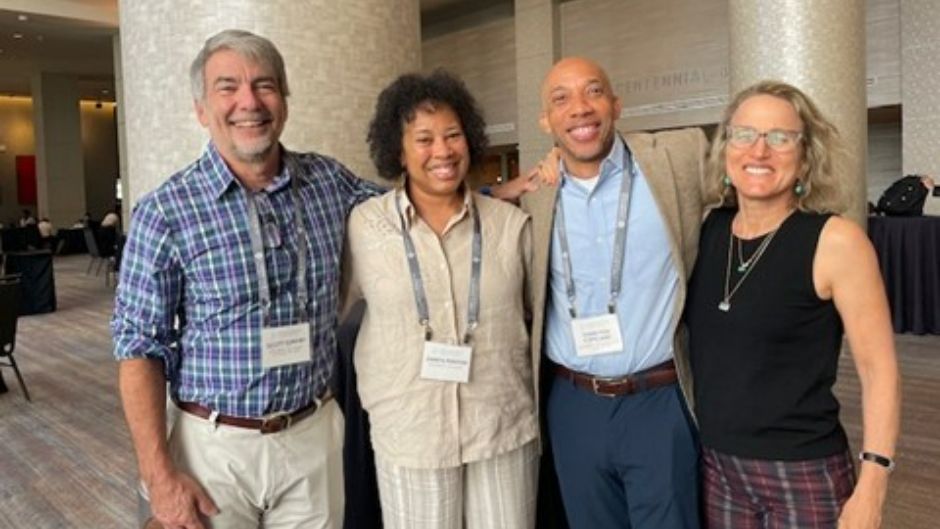Faculty from the University of Miami School of Law participated in the recent Law and Society Association annual meeting held in Denver, Colorado. The event, a convergence of scholars across various disciplines, was themed "Unsettling Territories: Tradition and Revolution in Law and Society." This year's theme provided a poignant backdrop to commemorate the 60th anniversary of the U.S. Civil Rights Act of 1964, among other landmark legislations and societal shifts. In addition to scholars from North America, the annual meeting was attended by scholars from Africa, South America, Europe, and Australia.
A delegation of seven faculty members from Miami Law participated as presenters, moderators, and commentators, substantially contributing to the dialogue on law and its far-reaching impact on society. The annual meeting, known for its interdisciplinary approach, saw discussions ranging from historical analyses to the socio-political implications of law in contemporary settings.
The significance of demeanor evidence in legal proceedings was critically examined by Professor Scott Sundby in his session, showcasing the intricate balance between law's tradition and the need for evolution to reflect current social understandings. Professor Charlton Copeland commented on the Reconstruction era’s goal of empowering those faithful to the Union in the Civil War as the central goal of the 14th Amendment.
Professor Zanita Fenton presented on "Speech as Property: Rights-Holding Property and Disenfranchised People," offering a novel perspective on the intersection of property rights and speech in the quest for racial equity.” Meanwhile, Professor Donna Coker shared insights from seminal works on criminalized survivors and the movement toward abolition feminism, chairing panels that discussed books by Leigh Goodmark and James Ptacek.
Copeland also examined the role that the Trump administration’s bureaucratic and litigation activity contributed to the challenges to affirmative action that led to the Supreme Court’s decision in Students for Fair Admission v. Harvard. Adding to the depth of discussion around labor rights, Professor Andrew Elmore led a crucial dialogue on "Labor Enforcement and Worker Power," shedding light on the challenges and opportunities within low-wage work and temporary staffing agencies. The critical examination of laws affecting Indigenous territories by Professor Pablo Rueda Saiz and a penetrating look at California's new use of force law by Professor Tamara Lave further exemplified the breadth of topics and expertise at the meeting.
The participation of Miami Law's faculty underscores the Miami Law’s deserved tradition as a center for law and society (also known as “law in action”) research and scholarship. Miami Law’s commitment to interdisciplinary inquiry is evident in the work of its faculty beyond those attending this year’s annual meeting. By delving into the complexities of law and its societal implications, the faculty from Miami Law has set a compelling precedent for legal scholarship and practice, reflecting on tradition while eagerly anticipating revolutionary changes in law and society.
Read more about Miami Law's faculty.

